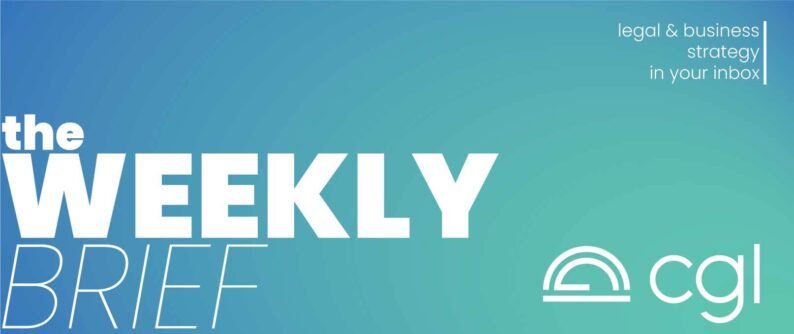
Recent case law in California has highlighted the importance of open communications about employment decisions, including promotions, raises and bonuses – particularly when it comes to defending lawsuits and engaging employees. With these compelling reasons for implementing a robust employee advancement policy in mind, here are some of the features you should include:
Provide details of the rationale behind the policy.
Your employee advancement policy will play a role in setting the tone for your workplace culture. Thus, it’s crucial that it reflects your corporate values. By outlining the rationale behind the policy, you can help to manage expectations, avoid disappointment, and help employees assess their prospects within the company.
Confirm which employees the policy applies to.
You may wish to restrict the number of employees who are eligible for certain career advancement opportunities, including promotions. Your policy should clearly outline whether employees who have not met tenure requirements, are on performance improvement programs, or who haven’t achieved certain milestones, educational requirements or the like are precluded from being promoted.
Clearly outline your criteria for advancement.
Your policy should provide details of the criteria decision makers will use in determining which employees advance in their careers. Common criteria used include experience, transferable skills, accomplishments and milestones, and leadership potential.
You should be careful to ensure that your criteria for advancement do not create unnecessary obstacles or barriers for protected categories of workers.
Set specific criteria for when employee advancement opportunities are considered.
With the view of (again) managing employee expectations, it makes sense to set specific events or time periods for advancement. These might include:
- A position advertised internally or externally.
- A position becoming vacant.
- A new position opening (due to corporate growth).
- An employee receiving consecutive strong performance reviews.
- An employee achieving a specific educational milestone.
- After the employee has achieved a certain time period in their current position.
Mitigating Legal Risk in Promotion and Employee Advancement Decision Making
In addition to a strong policy, managers should make and retain detailed contemporaneous notes. These notes should detail the reasons behind a decision to promote a certain employee and the reasons for not promoting the unsuccessful employees. These notes may become critical in the case of a lawsuit. Hence, it is important to be sure that they are clear, legible, and do not contain shorthand. Typically, these notes should reference the job responsibilities and description. They should contain details about why the promoted employee was suited to the new role.
Managers and team members involved in decision making should also receive training about the legal ramifications of hiring and employee advancement.
If you need assistance developing your employee advancement policy, reach out. We’re here to help!
Disclaimer
The materials available at this website are for informational purposes only and not for the purpose of providing legal advice. You should contact your attorney to obtain advice with respect to any particular issue or problem. Use of and access to this website or any of the e-mail links contained within the site do not create an attorney-client relationship between CGL and the user or browser. The opinions expressed at or through this site are the opinions of the individual author and may not reflect the opinions of the firm or any individual attorney.
